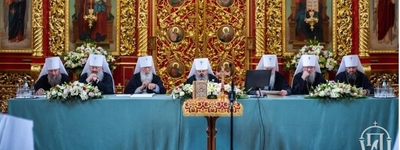Holocaust Commemoration: A Public or Private Matter?

The Ukrainian Catholic University has issued a statement supporting government control of the Babyn Yar commemorative site in Kyiv and opposing its subjection to private Russian interests (RISU, 15 June 2021). According to the UCU document, the conception of the memorial should be determined by the state and civil society. The Kyiv-born American historian Prof. Yohanan Petrovsky-Shtern of Northwestern University has warned of the consequences of Russian businessmen controlling the Babyn Yar memorial, and Prof. Uilleam Blacker of University College London’s School of Slavonic and East European Studies has called this a national security issue. Earlier, the All-Ukrainian Council of Churches and Religious Organizations also emphasized the importance of maintaining international scholarly standards, as well as respecting the religious sensibilities and traditions of the confessions represented by all those whose remains rest at the site.
Babyn Yar, a ravine near Kyiv, is the site of a series of massacres by the German occupation forces of over a hundred thousand Jews, Soviet prisoners of war, Communists, Ukrainian nationalists, Roma, and others during World War II. The most notorious mass killing, which took over thirty thousand lives, occurred on 29-30 September 1941. After the war, the Soviet government ignored the site. In 1961, Yevgenii Yevtushenko wrote a poem protesting against its failure to commemorate the victims of the crime, and the following year Dmitri Shostakovich wrote his Thirteenth Symphony to the poet’s text. In subsequent years, various memorial projects were discussed. In the last five years, two rival projects have emerged – one private, funded by Russian oligarchs, and one public, funded by the state.
The issue raised by the UCU statement is whether the creation, development, and maintenance of a national historical memorial site should be in the hands of (1) private interests, (2) foreign interests, (3) the state, (4) civil society, or (5) some combination from among the above.
It is obvious that an historical event – especially a national tragedy like Babyn Yar – is a matter of national importance and should not be subjected to the interests of private persons, however well-funded or well-intentioned they may be. Babyn Yar concerns the people of Ukraine and, indeed, of all humanity. There would be insufficient public control of the memorial site if it were handed over to private business.
The dangers of private control are compounded when all or part of that control comes from foreign sources, particularly sources in a hostile country engaged in aggressive war against the country where the historical site is located. Manipulation of history for propaganda purposes – especially where (as today) the propaganda is part of multi-vector aggression – is too likely a consequence.
State control is desirable because the state is responsible for preserving the historical memory of its citizens, particularly with regard to events of public concern like wars and occupations. At the same time, state control could pose dangers too. Governments come and go. A government with an unfavorable attitude towards the aims of the historic site could neglect or even harm it. A favorably disposed government could indulge in excessive glorification or vilification of historical actors or other distortions. Nevertheless, in a democratic state, government policy is subject to popular monitoring and control as well as to the critical oversight of professional historians.
In other words, state control of a historic memorial site should always be answerable to civil society. For it is historians, architects, and museum personnel, as well as the general public, who have the right and the obligation to ensure that the state creates appropriate memorials to historical persons and events. In the case of Babyn Yar, civil society should also participate in the development and maintenance of the memorial in a manner that serves not only to preserve the memory of the Holocaust and its victims, but also to interpret it objectively for the citizens of Ukraine and foreign visitors, and to ensure that its lessons are broadly disseminated at home and abroad.
Only a partnership of the state and civil society can ensure that these goals are met.










